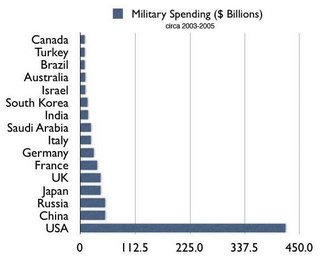
Immediately after 9/11, the media was filled with questions of "why do they hate us so much?" Our country, with all its resources at its disposal, came up with the obvious answer--they hate us for our freedom. This is the equivalent of the high school cheerleader telling her friends that people hate her because she's so nice. One of the main countries that focus was put on is Iran, one of those members of the "Axis of Evil" (too corny even for a comic book). From an American perspective, they see an Iranian burn a flag and therefore, he is evil. He hates America for the freedom and wonder of democracy. But what if we were wrong? What if America had done something to Iran in the past, something that would justify such hate? What if America overthrew the only democratically-elected government that Iran has ever had? And for OIL. Well, it did.
It all starts with Mozzafar al-Din Shah Qajar, Shah of Persia from 1896-1907. A highly unpopular leader who was hated by his people, Mozzafar also had a very luxurious lifestyle. In order to pay for this, he gave away much of the country of Iran's wealth to foreign businesses. In what is called the D'Arcy Oil Concession, Mozzafar gave away the rights to Iran's oil for 60 years to the British Anglo-Iranian Oil Company. He sold it for only 10,000 £, which today is approximately $1 million.
Without going into too much detail, shortly after Mozzafar left the Iranian Constitutional Revolution took place, and that was when Parliament was first established. The Iranian people now had, at least formally, some sort of political representation. Meanwhile, the British oil company was making a fortune off oil revenues (84% of all profits of production never saw Iranian hands).
Then, in 1951, Dr. Mohammed Mossadegh was elected Prime Minister. Mossadegh was extremely popular, both inside and outside Iran and was named Time magazine's "Man of the Year" for 1951. But Mossadegh deeply hated foreign intervention in Iran, and pushed for the nationalization of Iran's oil reserves. Responding to the demands from the Oil Company, Britain immediately put an embargo on Iran. But this wasn't enough, and the nationalization of oil continued. The British government went to the United States for help, and in 1953 the CIA launched Operation Ajax to overthrow Iran's democracy. Kermit Roosevelt, grandson of former President Roosevelt, was the Near East director of the CIA and orchestrated the operation. Using a combination of lies and bribery of politicians, military personnel, and religious leaders, the CIA was able to throw Iran into chaos and drive Mossadegh from power. He was arrested on charges of treason, put in jail for 3 years, and then afterwards lived under house arrest until his death. The Shah Mohammad Reza Pahlavi, who was forced to step down by the Allies in WWII due to his cooperation with Nazi Germany, was put back in power with the help of the US and Britain. His rule became very dictatorial. The CIA helped Pahlavi set up his own intelligence agency called SAVAK. SAVAK had near unlimited power, had secret detention centers, tortured Iranians, and it is estimated that it killed nearly 15,000 Iranians in the 1960s. In return for this support, the Shah allowed an consortium of British, American, Dutch, and French companies (40%/40%/14%/6%, respectively) to operate the oil fields for the next 25 years. This consortium was supposed to split the profits from oil 50/50 with Iran, but Iran was not allowed to audit the companies accounts and make sure that they were getting their half of the profits.
This overthrow of Iran's democratic government and the support that the US gave to Iran's dictatorial Shah in exchange for oil is one of the main reasons why Iranians hate the United States. The connection is not usually made, but the reason that the Iranians took over the US embassy in 1979 was that they believed that the United States was going to overthrow the new government established in the Iranian Revolution as it had done with Mossadegh. For this reason they called the embassy the "den of spies".
These historical events are important to consider when looking at the events of today. Is it believable the the United States wants democracy in Iraq, and isn't there for the oil? Seems unlikely considering the US has shown that it is willing to overthrow democracies in order to get access to oil.
And the Anglo-Iranian Oil Company? They are now called BP.

























